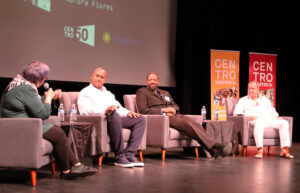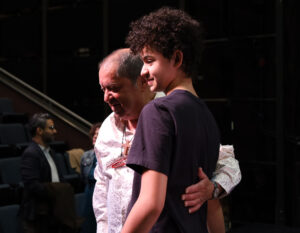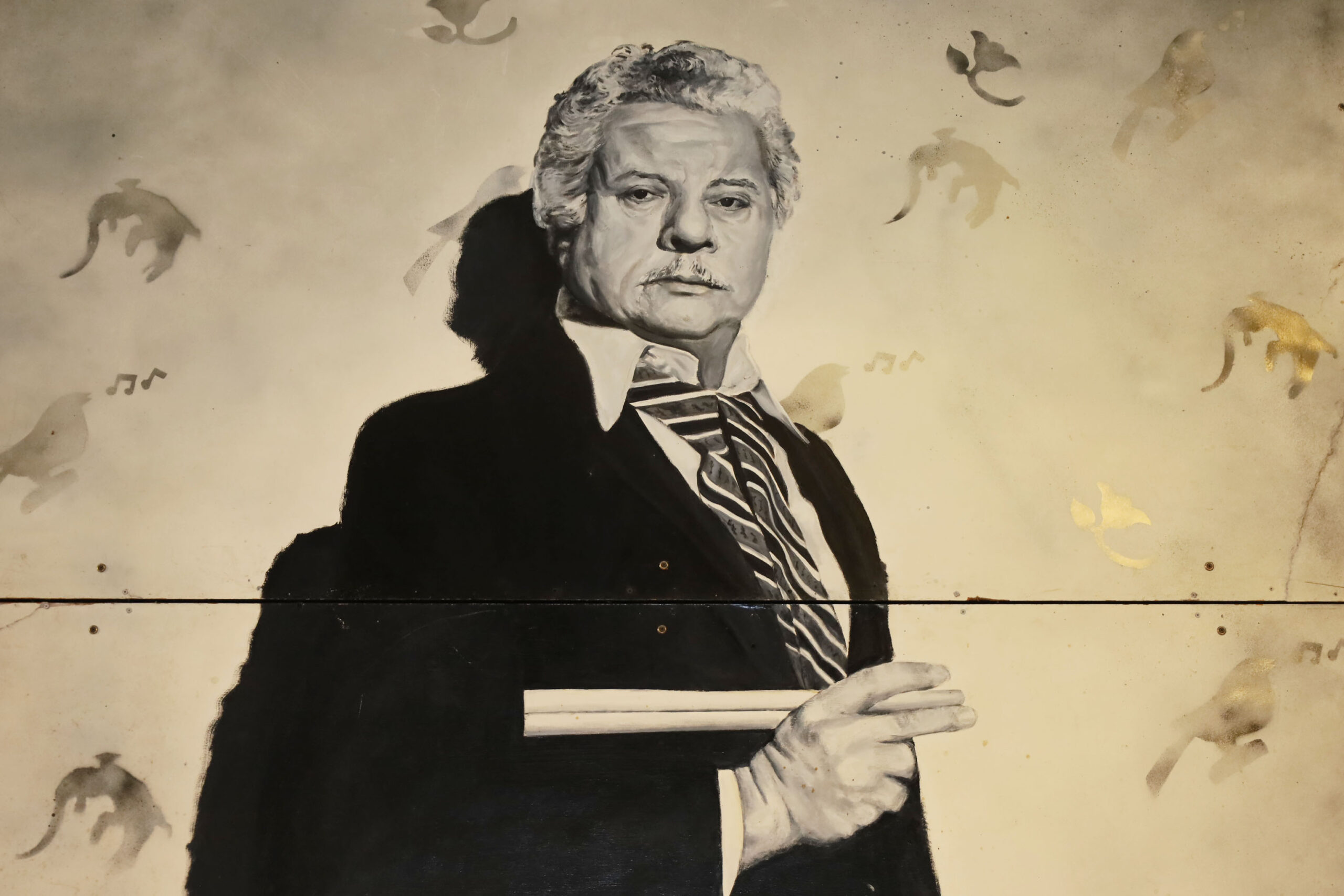Latin Jazz Legend Tito Puente was the toast of the evening Wednesday as El Centro, the Center for Puerto Rican Studies at Hostos Community College, celebrated the 100th anniversary of his birth with accolades from friends and admirers of all ages..
“He knew that instrument like the blood that runs in our veins,” said Nicky Marrero, famous Latin Jazz percussionist and one of the speakers at the centennial celebration.
Joe Conzo Sr., music historian, longtime friend of Puente and author of, “Mambo Diablo: My Journey with Tito Puente, was master of ceremonies for the evening. “I was with him 50 years,” said Conzo.
Through the decades, Puente gave Conzo items of clothing and instruments for posterity which Conzo later donated to Hostos. Using those items, such as a pair of timbales and a blue sequined tuxedo jacket, the school created the Tito Puente Legacy Project in 2017.
Journalist Aurora Flores moderated a panel of speakers reminiscing about the great “Mambo King,” his enormous influence on music and on their own lives.
A panel of musicians shared their personal experiences of the late, great “Mambo King” Tito Puente. From left: Aurora Flores, Frankie Morales, Oreste Abrantes and Nicky Marrero.

Born in Harlem Hospital on April 20, 1923 to Puerto Rican parents, the jazz great’s given name was Ernesto Antonio Puente Jr., but friends and family called him Tito and the name stuck. Puente was said to be a rambunctious child, banging on anything that could replicate a drum.
According to the Smithsonian Institute, neighbors begged his mother to get him lessons to ease the noise and by age seven, Puente was enrolled in piano lessons. At age 10 he had switched to percussion.
Puente was drafted during WWII and served in the Navy from 1942 to 1945 where he was a first class bugler and toured places like Guam, New Guinea and Okinawa. When he returned, he enrolled in the Julliard School of Music under the G.I. Bill where he studied, among other things, a mathematical approach to music called the Schillinger system of musical composition.
“He had his own style – there were hardly spaces in between the notes,” said Marrero of Puente’s music. “I imitated a lot of Puente. His facial expressions, how he stood,” and his hair. A 1977 photo of Marerro shows him looking very similar to how Puente looked at the height of his career. Marerro said that listening to Puente’s music was like “taking a pill to help me relax.”
At Julliard, Puente started his first band and never looked back. He is credited with bringing mambo and Latin Jazz into the mainstream. A man of many talents, he was a master percussionist, a dancer, trumpet player, band leader and songwriter.
He was also admired as a positive force to those around him.
“[Seeing Tito] taught me that there’s possibility, there’s opportunity,” said Oreste Abrantes as he described his first time meeting Puente as a child.
Abrantes is a renowned percussionist and received the Tito Puentes scholarship while attending the Harbor Conservatory for the Performing Arts in Harlem. There, he was selected to give a musical demonstration on the children’s show “Gullah Gullah Island” when he was seven. He didn’t know that Puente would also be there.
***

Abrantes described wanting to approach Puente as a crazed fanatic, but then told himself, “Be cool.” And that moment of reserve despite sheer excitement Abrantes said, “that taught me maturity.”
Frankie Morales, another panelist, reminisced about having his first big gig singing back-up for Hector Lavoe when he was 12. Morales will play all of Puente’s hits at Swing 46 on 46th Street Thursday from 7 to 11 p.m. in celebration of what would have been the 100th birthday of “El rey de los timbales.”
Puentes died on May 30, 2000 from surgical complications after suffering a massive heart attack. But despite being gone for 23 years, Puente’s legacy continues to influence even the youngest of generations.
Dean Scott Vazquez, 15, was in the audience with his father. He plays the timables, congas and is learning the alto sax. He had an opportunity to speak with Marrero after the panel and asked, “How do you incorporate Tito Puente’s playing style with your own style – and make it into your own without fully copying what he does?”
“[I] just improvised and practiced over and over and over again,” Vazquez said Morales advised him.
“I know Tito Puentes wanted to play his timbales on the moon,” said Flores.
Hopefully, the pearly gates will suffice.

